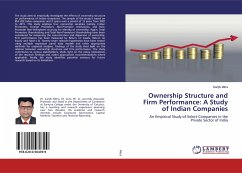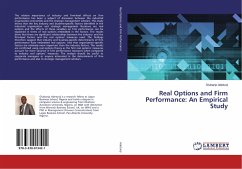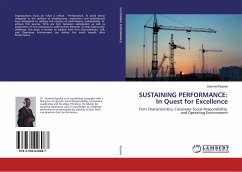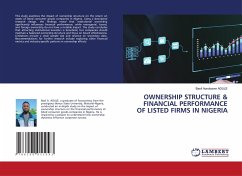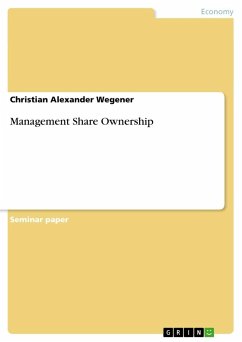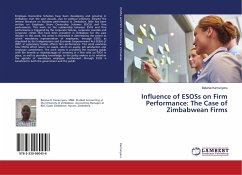
Influence of ESOSs on Firm Performance: The Case of Zimbabwean Firms
Versandkostenfrei!
Versandfertig in 6-10 Tagen
37,99 €
inkl. MwSt.

PAYBACK Punkte
19 °P sammeln!
Employee Ownership Schemes have been developing and growing in Zimbabwe over the past decade, due to political initiatives. Despite the intense literature on business performance in Zimbabwe, little has been written on Employee Share Ownership Schemes (ESOS) and firm performance. This work on the relationship between ESOS and firm performance is triggered by the corporate failures, corporate scandals and corporate crimes that have been prevalent in Zimbabwe for the past decade. In this work, the writer is interested in determining the extent to which mandatory representation of employees, thro...
Employee Ownership Schemes have been developing and growing in Zimbabwe over the past decade, due to political initiatives. Despite the intense literature on business performance in Zimbabwe, little has been written on Employee Share Ownership Schemes (ESOS) and firm performance. This work on the relationship between ESOS and firm performance is triggered by the corporate failures, corporate scandals and corporate crimes that have been prevalent in Zimbabwe for the past decade. In this work, the writer is interested in determining the extent to which mandatory representation of employees, through ESOS, as stipulated by the Indigenisation and Economic Empowerment Act (IEEA) of 2007, in supervisory bodies affects firm performance. This work examines how ESOSs affect return on assets, return on equity, job satisfaction and employee commitment. The work assists in providing the investing public with the benefit or disadvantages of investing in a firm with an ESOS in place, as well asproviding knowledge to the policy makers as to whether the agenda of mandatory employee involvement through ESOS is beneficial to both the government and the public.



